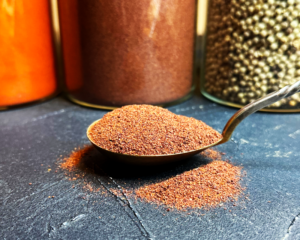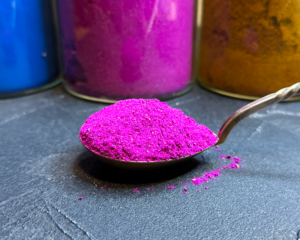Organic Coriolus (Turkey Tail)
Turkey Tail mushroom, or Coriolus which probably means Coriolus versicolor, is also known as Trametes versicolor. This mushroom has a long history of use in various cultural medicinal traditions, particularly in Asia.
In Traditional Chinese Medicine (TCM), Coriolus versicolor, known as Yun Zhi, is highly valued for its properties, especially for modulating the immune system and as an aid in cancer treatment. It is thought to have a sweet and slightly warm property, acting on the liver and spleen meridians. The mushroom is used in various forms, including decoctions, powders and capsules, and is often combined with other herbs. It is often used to improve liver and respiratory health.
Although there are promising studies, many of the health claims are based on traditional use and primary research:
Immune support: The Turkey tail contains polysaccharides such as polysaccharide-K (PSK) and polysaccharide-peptide (PSP), which are thought to enhance immune function.
Anticancer properties: Some studies suggest that compounds from the Turkey tail mushroom may have anticancer effects, particularly by enhancing the effectiveness of chemotherapy and reducing its side effects.
Antioxidant activity: it contains antioxidants that help reduce oxidative stress and may contribute to overall health.
Gut health: Turkey tail is thought to have a positive effect on gut health due to its prebiotic properties, promoting beneficial gut bacteria.
Attention
It is generally considered safe for use in food or as a supplement, but high doses or long-term use can cause digestive upset, darkening of the nails and, in rare cases, liver problems.
Be careful if you are taking medication.
Use of
It is often taken in the form of capsules, powders or teas.
It is used in a variety of traditional medicine practices, most commonly as an immune booster or to support cancer treatment.
There is no standard dosage; it can range from 1 to 9 grams per day, depending on the intended use.
Sources:
https://www.mskcc.org
https://pubmed.ncbi.nlm.nih.gov
NOTE. The information contained herein should not be construed as a recommendation for treatment or other health issues. We encourage you to make personal decisions about your personal health, taking into account a wide range of sources of information.


